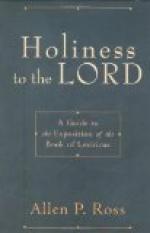But if time has no reality, is not an existing entity, then these transcendental problems resulting from our time conception, of extinction or immortality, have no real existence, but are really phenomena of the human mind, and cease to exist if we go beyond the limitations of our mind, beyond our peculiar time conception.
It is interesting to realize that the modern development of science, in the relativity theory, has proved not only that time is not real, but a conception, but also has proved that the time of our conception does not flow uniformly at constant rate from past to future, but that the rate of the flow of time varies with the conditions; the rate of time flow of an event slows down with the motion relative to the event.
But the conception of a reversal of the flow of time is no more illogical than the conception of a change of the rate of the flow of time. It is inconceivable, because it is beyond the limitations of our mind.
Thus we see that the questions of life and death, of extinction and immortality, are not absolute problems, but merely the result of the limitations of our mind in its conception of time, and have no existence outside of us.
After all, to some extent we conceive time as reversible, in the conception of historical time. In history we go back in time at our will, and traverse with the mind’s eye the times of the past, and we then find that death and extinction do not exist in history, but the events of history, the lives of those who made history, exist just as much outside of the span of time of their physiological life—that is, are immortal in historical time. They may fade and become more indistinct with the distance in time, just as things in space become more indistinct with the distance in space, but they can be brought back to full clearness and distinction by again approaching the things and events, the former moving through space, the latter moving through the historical time—that is, by looking up and studying the history of the time.
THE ENTITY “X”
Scientifically, life is a physico-chemical process. Transformations of matter, with which the chemist deals, and transformations of energy, with which the physicist deals, are all that is comprised in the phenomenon of life; and mind, intellect, soul, personality, the ego, are mere functions of the physico-chemical process of life, vanishing when this process ceases, but are not a part of the transformations of matter and of energy. If you thus speak of “mental energy,” it scientifically is a misnomer, and mind is not energy in the physical sense. It is true that mental effort, intellectual work, is accompanied by transformations of matter, chemical changes in the brain, and by transformations of energy. But the mental activity is not a part of the energy or of the matter which is transformed, but the balance of energy and of matter closes.




